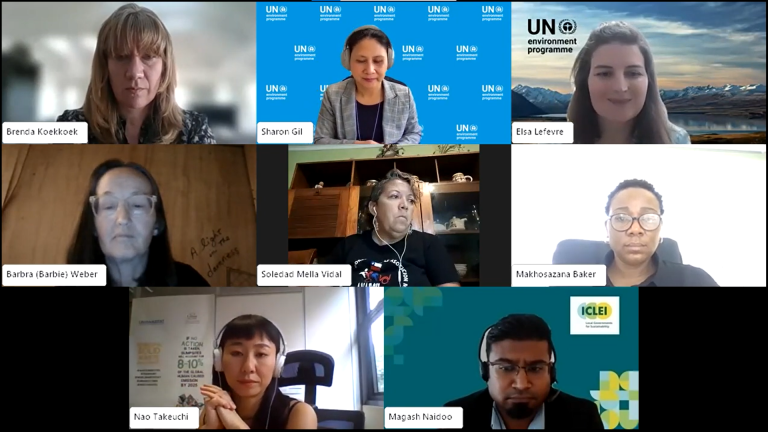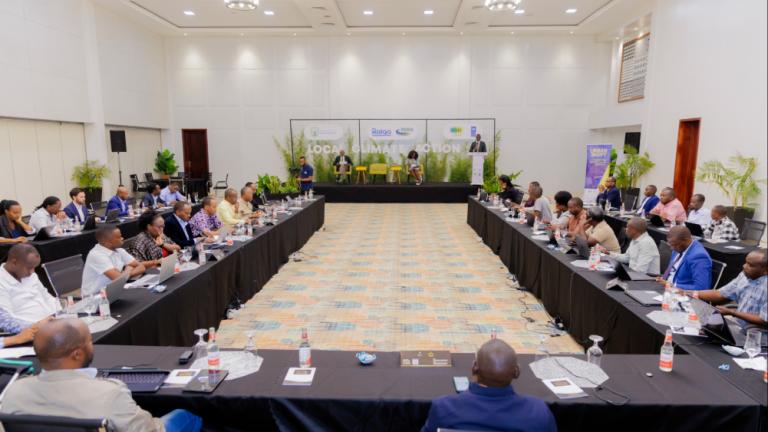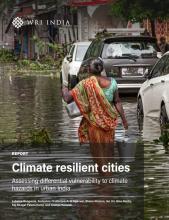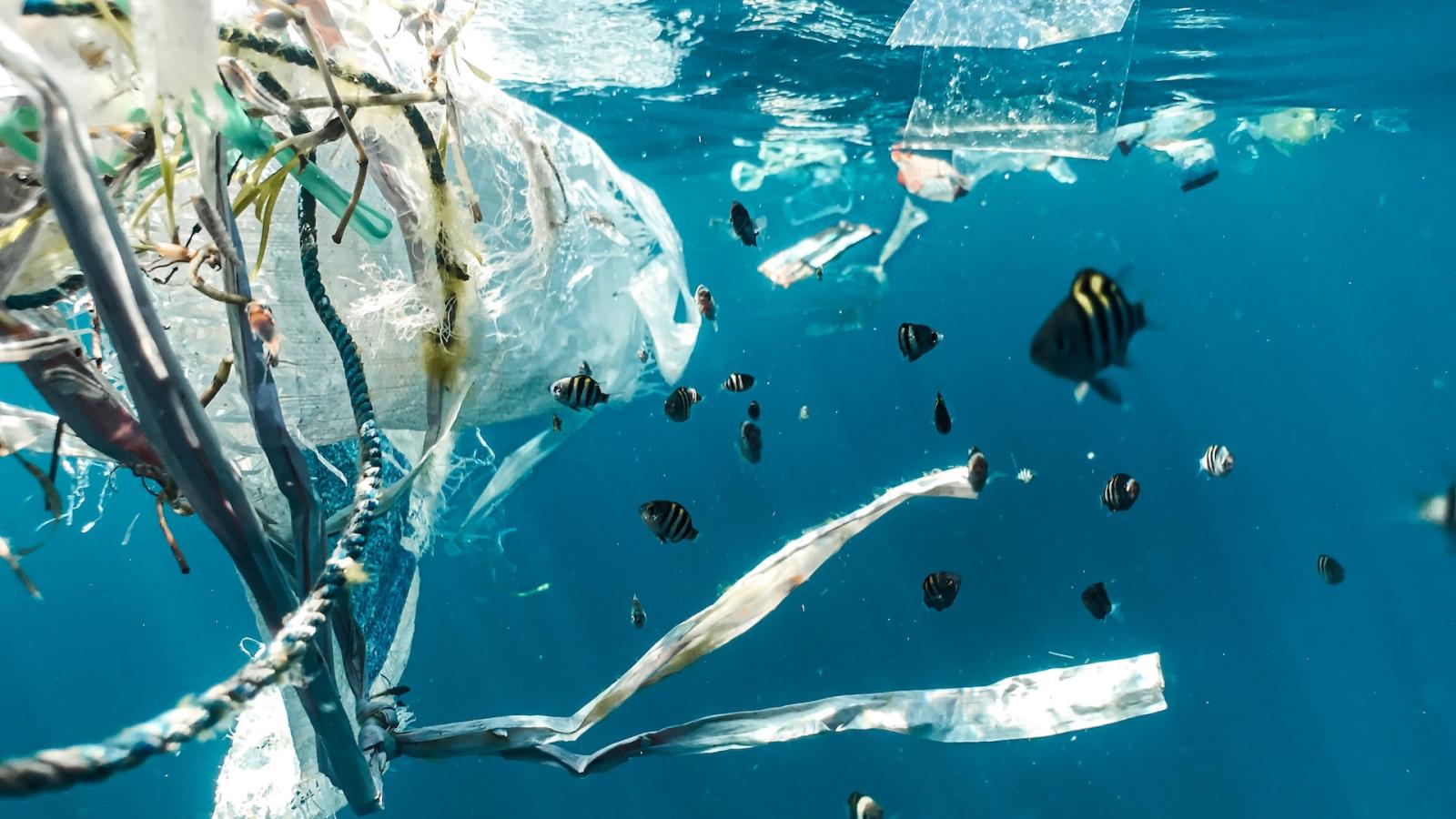Advocacy
Paris International Forum to End Plastic Pollution in Cities
UrbanShift, global Mayors and city leaders held a series of critical discussions around the need for solutions to minimize the impact of plastic on the planet.
Naja Bertolt Jensen/Unsplash
Our planet is choking on plastics. The problem of plastic pollution is particularly acute in urban areas, where high population densities and concentrated economic activity generate significant amounts of consumption and waste. Around 75% of the total plastic waste generation comes from municipal solid waste streams. Much of it ends up in landfills, waterways, and the ocean, and significantly contributes to climate change.
Recognizing the positive global impact of a circular economy for plastic and the need for common guidelines to end the plastic pollution crisis, the UN Environment Assembly adopted in March 2022 a landmark resolution titled “End plastic pollution: Towards an international legally binding instrument." An Intergovernmental Negotiating Committee (INC) was set up and met for the first time in December 2022. The second session of the INC will be held in Paris, France, from 29 May to 2 June 2023.
To mark this occasion and contribute to this important process, the City of Paris organised its first International Forum to End Plastic Pollution in Cities on Friday, May 26.
This Forum gathered mayors from every continent, scientists, non-governmental organizations (NGOs), intergovernmental organizations and philanthropies committed to fight plastic pollution for a day of exchanges on solutions to minimize the impact of plastics on the planet.
Speakers
- Amy Larkin, Founder and Director of PR3
- Anne Hidalgo, Mayor of Paris, France
- Bethanie Carney Almroth, Steering Committee Members, Scientists' Coalition for an Effective Plastics Treaty
- Betty Osei Bonsu, Country Manager, Green Africa Youth Organization, Uganda
- Bima Arya Sugiarto, Mayor of Bogor, Indonesia
- Erin Simon, Vice President and Head of Plastic Waste and Business, World Wildlife Fund
- Errick D. Simmons, Mayor of Greenville, Mississippi
- Fatimetou Abdel Malick, President of the Regional Council of Nouakchott, Mauritania
- Femke Halsema, Mayor of Amsterdam, Netherlands
- Inger Andersen, Under-Secretary-General of the United Nations and Executive Director of the UN Environment Programme
- Joy Belmonte, Mayor of Quezon City, the Philippines
- Manuel Pulgar Vidal, Global Leader, Climate & Energy, WWF-International
- Marcos Liborio, Secretary for Environment of Santos, Brazil
- Michèle Boisvert, General delegate of Québec in Paris
- Minna Arve, Mayor of Turku, Finland
- Nabila Rmili, Mayor of Casablanca, Morocco
- Pratistha Mamgain, Commissioner of Ambikapur, India
- Trisia Farrelly, Steering Committee Members, Scientists' Coalition for an Effective Plastics Treaty
Moderators
- Cristian Kaufholz, Head of Community Engagement & Impact, Resource Circularity, World Economic Forum
- Henri Bourgeois-Costa, Director of public affairs, Tara Foundation
- Kobie Brand, Deputy Secretary General, ICLEI
- Nathan Dufour, Reuse Systems Manager, Lead of the ReuSe
Vanguard Project (RSVP), Zero Waste Europe - Romain Troublé, Executive
Director of the Tara Ocean Foundation

Plastic Pollution & Cities: Building Momentum Towards a Global Plastics Treaty
At this circular economy-themed webinar, we heard from experts, city representatives and waste pickers about the causes & consequences of plastic pollution in cities, and what cities can do to initiate a just transition to a plastic-free economy.

UrbanShift Looks Back: On the Importance of Facilitating Multi-Level Collaboration
Over the course of the UrbanShift program, ICLEI has led on National-Local Dialogues and other efforts to support enhanced collaboration across levels of government to create more aligned, actionable climate strategies.

UrbanShift at COP30
UrbanShift will be participating in a range of events during the Local Leaders Forum in Rio and COP30 in Belém. Learn more here.

Climate Resilient Cities: Assessing Differential Vulnerability to Climate Hazards in Urban India
The report highlights the need to integrate equity into climate action planning in Indian cities. It examines how socioeconomic inequality and marginalization shape climate risks.

